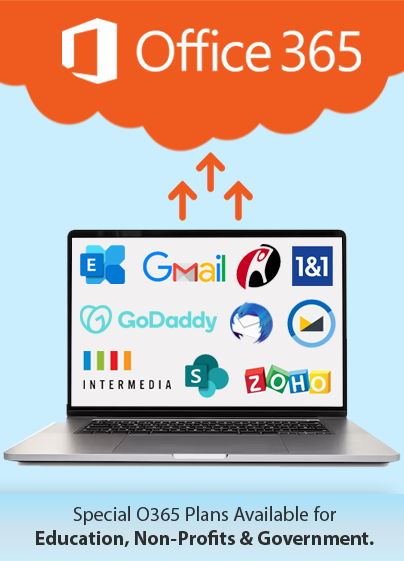How to Migrate from Tableau to Power BI?
Tableau and Microsoft Power BI are the two leading BI solutions on the market. They both have strong features, security, and cloud functionality. Still, more people than ever are making the migration from Tableau to Microsoft Power BI.
Businesses are very aware of the value that business intelligence (BI) tools can bring to the workplace, so finding the right one is vital. This article will go over all the differences between Tableau and Power BI and highlight the benefits of migrating from Tableau to Microsoft Power BI
Why Migrate from Tableau to Power BI?
Deciding whether to migrate from Tableau to Power BI can be challenging, especially when a business has been using Tableau for a while. That being said, there are a lot of reasons to migrate from Tableau to Power BI these days.
One of the biggest factors driving people to switch is the fact that Power BI is less expensive. Businesses looking for the most cost-effective BI tool will likely benefit from migrating to Power BI. Power BI is also integrated into Microsoft’s extensive ecosystem of applications.
This means an easier workflow by keeping the applications in the Microsoft ecosystem. By that same token, better integration with Excel is another major factor that causes people to migrate from Tableau to Power BI.
For businesses that use other Microsoft applications like Word, Excel, or PowerPoint, migrating from Tableau to Power BI may be a good option. Microsoft also publishes more frequent software updates for Power BI ensuring that the product is always up to date with the newest features and performance enhancements.
A more subjective reason to migrate to Power BI is the dashboard UI, which many people seem to prefer over Tableau. More details on the benefits of Tableau to Power BI migration will be covered in the section below.
Benefits of Migrating from Tableau to Power BI
While Tableau has been a popular BI tool for many businesses, cost, licensing, and a non-standard reporting format have given Power BI the chance to skyrocket in popularity.
One of the biggest benefits of migrating to Power BI is a much more flexible and simplified workflow. Power BI uses natural language, R, DAX, and M to ensure that businesses can utilize the tools using simplified data preparation and custom visuals.
Power BI also has an easier setup and a lower learning curve. Being useable immediately allows for easier access to reports and functions all in a simple and understandable format. This can help reduce development and improve integrations with third-party systems.
As previously mentioned, Power BI is fully integrated with the Microsoft ecosystem. This means that it will be useable seamlessly with popular applications like Word, Excel, and other Microsoft Office 365 and Azure applications. This benefit ensures a more streamlined workflow due to the integration with Microsoft’s already robust lineup of applications and software.
Tableau vs Power BI Licensing Costs
When deciding whether or not to migrate from Tableau to Power BI, licensing costs should be at the forefront of the decision. It is important for businesses to have access to BI tools that provide value and quality. While both charge a monthly fee, there are some considerable differences in cost.
Power BI currently has three tiers. The lowest, the Pro tier, is $10 per month and allows users to view, share, and publish reports on PowerBI.com. Tableau’s lowest tier, the Viewer tier, is $15 per month and only allows users to view and share existing reports.
It’s easier to see that Power BI is the clear winner when it comes to value for the price. Apps4Rent can help go over all the different licensing costs to make the migration process simple and easy.
Steps to Migrate from Tableau to Power BI?
Although there are many benefits to migrating from Tableau to Power BI, it can be a time-consuming process. The migration process may involve a good amount of manual migration, so having developers who are familiar with both platforms is essential to a proper migration.
The first step to migrating from Tableau to Power BI is to evaluate the current Tableau environment. This involves reviewing all existing Tableau reports, dashboards, data sets, and any custom calculations in place.
Once this is done, defining the scope and planning for data sources can be taken care of. Once the scope has been defined and data sources secured, resource allocation can begin to ensure enough resources are assigned to get the migration done as quickly and efficiently as possible.
After this, getting Power BI installed and team members trained on how to use it is the next step. Once team members have begun to get familiar with Power BI, data migration can begin as well as dashboard and report conversion.
Ensuring a rigorous testing and validation process is in order can ensure any problems encountered during the migration process can be identified and fixed.
Following these steps can ensure a problem-free deployment of Power BI. It is recommended that documentation and training on the software be kept up to ensure easier onboarding for employees using the software.
Apps4Rent Can Help with Tableau to Power BI Migration
Power BI is quickly overtaking Tableau in the BI industry. This is because Microsoft Power BI is more affordable and allows for more features at lower tiers. Apps4Rent is a Microsoft Solutions Partner and can help you migrate from Tableau to Power BI. Our Microsoft 365 migration experts are available 24/7/365 to help make sure that the migration from Tableau to Power BI is quick and easy. Contact Apps4Rent via phone, chat, or email today to get the migration process started!
Apps4Rent – Tier 1 Office 365 Cloud Solution Provider
